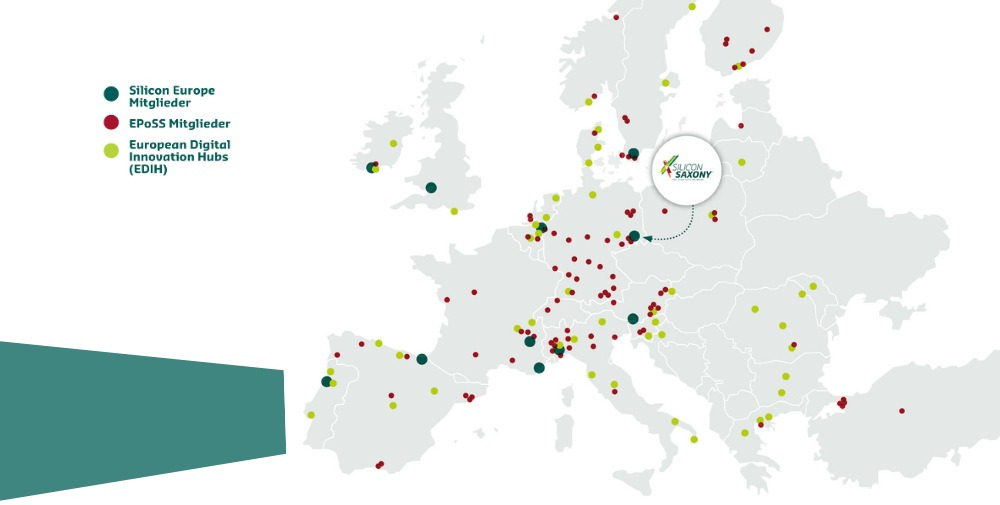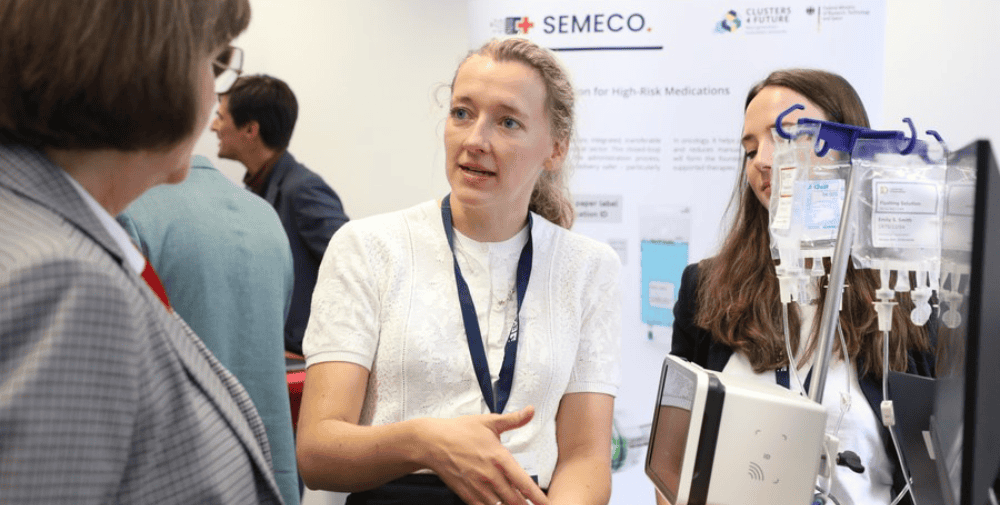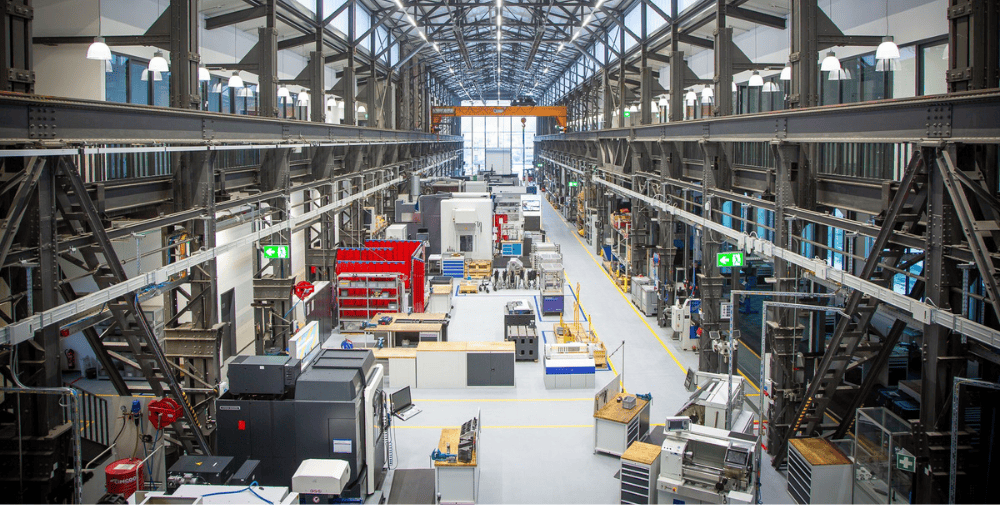Smart People for Smart Systems
Smart systems continue to challenge the European industrial and research landscape. They are always more than the sum of their parts, and world-class applications hide long development cycles and extensive supply chains.
So it takes a successful interplay between a wide range of players. Since the 1990s, cooperation structures have gradually emerged in Europe to meet this requirement. In order to be able to map the entire value chain, players across different industries and disciplines are linking up both regionally and supraregionally. Networking does not stop at the borders of Europe. Many European players are also embedded in international collaborations.
Over the years, regional clusters have emerged with different thematic focuses, such as medical or automotive applications. Collaboration in networked structures has also enabled standards to be set jointly and implemented industry-wide. In this way, it is possible to jointly develop systems that can be used universally for the various application fields.
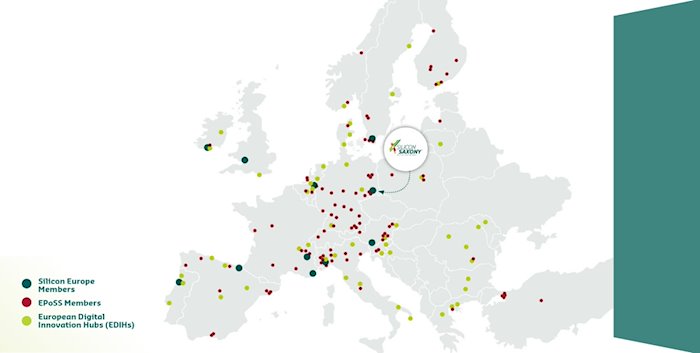
One of the supporting European networking structures is the industry association EPoSS. Now counting nearly 100 members from 17 countries, the association brings together large, established companies such as Bosch, Infineon, Siemens and Continental with small specialists and innovators. Start-ups are just as much a part of the EPoSS network as renowned research institutions, for example six institutes of the Fraunhofer-Gesellschaft alone. EPoSS primarily networks players who want to cooperate at the European level, but also cooperates via these players down to local contexts with regional clusters in the Silicon Europe Alliance as well as with the European Digital Innovation Hubs (EDIHs) in the field of smart systems.
As the mouthpiece of the smart systems community, EPoSS bundles their interests in the direction of European funding instruments. EPoSS shapes the European roadmap for them, for example in the form of the annual research and development agenda “Electronic Components and Systems Strategic Research and Innovation Agenda (ECS-SRIA)”. Based on this, funding calls are designed in the Key Digital Technologies Joint Undertaking (KDT-JU) and the Eureka cluster Xecs. Through the network, small and medium-sized enterprises also gain access to funding opportunities. In this context, EPoSS is the one of the three industry associations representing the ECS community in the KDT-JU that is particularly committed to smart systems and integration topics.
In particular, recent innovations in artificial intelligence will foreseeably lead to a new surge in complexity for smart systems. In addition, the degree of complexity will continue to increase due to sensor fusion and integration density – and thus the necessity and benefit of driving developments forward together will continue to rise. After all, any smart system is only as smart as the combination of the minds behind it.
_ _ _ _ _
Further links
👉 EPoSS
👉 European Digital Innovation Hubs
👉 Silicon Europe
👉 Smart Systems Integration
_ _ _ _
Author
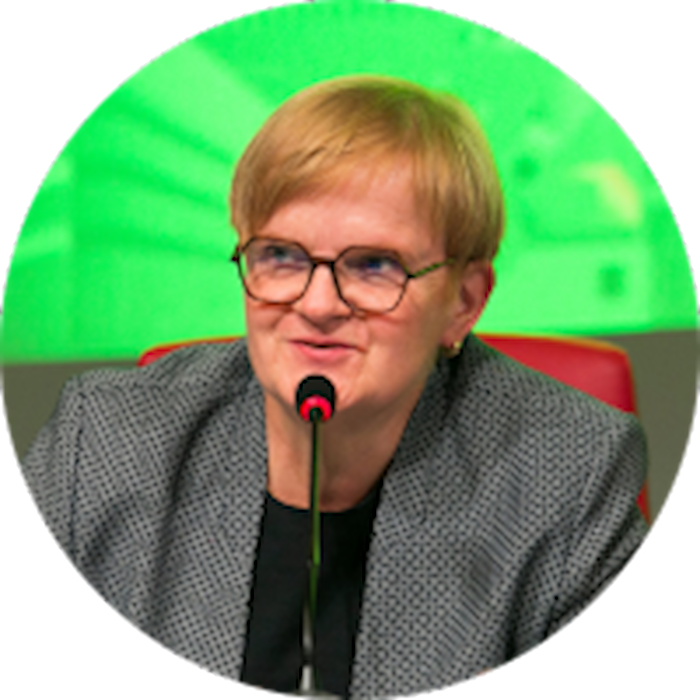
Image: Mattia Marinolli, Giorgio Gulmini
Dr. Elisabeth Steinmetz
Office Director EPoSS e.V. &
Group Leader Intelligent Systems, Mobility and Infrastructure (SMI) at VDI/VDE Innovation + Technik GmbH
Steinpl. 1
10623 Berlin
Phone: +49 30 310078155
👉 Dr. Elisabeth Steinmetz on LinkedIn
